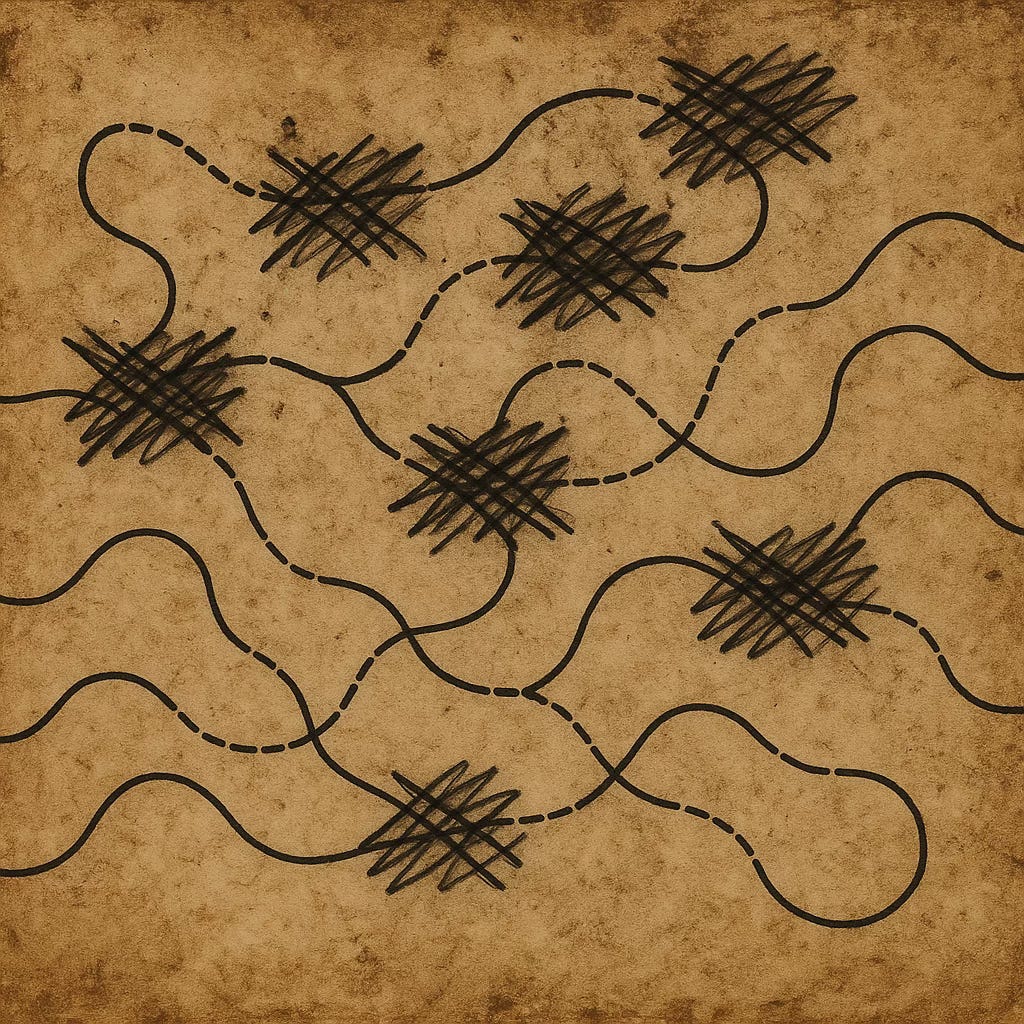Doing It All Wrong
Why dropping out still matters
Sometime back, when social media didn’t exist, when there were no creative writing courses, no prizes or competitions to speak of (well, not outside of London) – I set out to be more serious about my writing. Now at some point, all writers determine to be more serious, but in those days – we’re talking about the late eighties and early nineties – you could slip into being more serious relatively unnoticed. No one was emerging. No one was doing open mics. If you wanted to know what was happening you subscribed to magazines, haunted your local library, bought your books from the poetry shelves of bookstores. Amazon didn’t exist. Online didn’t exist.
Yes, you got down to business by reading, then reading some more, and then some more. Poetry wasn’t an academic topic, as much as a chthonic force, an undercurrent, a resistance. You were alone, adrift. There might have been a tiny local performance group connected to a provincial library, that met in the back rooms of a failing pub and where a group of men, it was mainly men, would circulate mimeographed copies of concrete poems about pylons and railways. Someone always mentioned the Mersey Poets, ‘You can’t beat them, really.’
When things began to change, they changed quickly. First up, we saw the emergence of email, later to become the diarrhoea of digital. Dial-up broadband brought about the opportunity to sign into bulletin boards, where the world began to expand – connecting all the progressive enthusiasts into a sort of interlinked fan club. It felt like you were discovering post-apocalyptic cells of poets, many of whom were jazz and real ale fanatics, many of whom loved the sixties, many of whom thought modernism was still modern. But it was enormous fun. Cranky and bewildering and eclectic and fussy and combative.
I mention all this because in the flash of an eye that world with its loose connections to English departments and the quaint Marxism and theory-driven stakes in the past, was catapulted into the big business of CW. We all have to earn a living, and CW with its American pre-packaged stakes in campus literature and meta-campus novels about creating campus poets all discussing tenure and marking and meetings with the Dean about shagging the students or budget savings – all that now familiar economic noise – was imported wholesale within a decade. The whole idea of having a poetry life outside of this machinery is almost unheard of now. How did this happen?
Well, I’m not best placed to explore that, I am of the generation that saw it happen but was already working elsewhere, in another profession. But I’m not writing a critique of this now universal world view of qualified poetic practice – I’m writing about not choosing it. Because you are perfectly free to not choose it.
It might seem crazy to say to someone in their late teens and early twenties, but being a CW undergrad really isn’t a career path, less still the route to publication you might think. Well, let’s face it, it is one route to publication, but I worry that the sort of poetry necessitated by this system, comes with a cost. The first assertion I’ll make is that this world focussed on self-assessed innovation is trapped in its own terms of reference – being a non-academic, I don’t need to support my assertion with evidence and references, I can just say that writing within this field (to use Bourdieu’s term) now has considerable structural force. Getting the right people to say the right thing about the right approach to a poem is a clear characteristic. Still, when I was growing up, poetry was something that opposed all this, actively resisted it, casting about for language that connected people to each other and not to vested interests in a manic system of self-reference. I can contradict myself here and say that CW can be massively beneficial. You can see I’m hotting up now. I can hear some bridle at the familiar accusation of questioning whom one writes for, and how, and questions of audience and engagement. To misquote Gore Vidal: these arguments are so old I’ve forgotten all the answers.
Still, I think it’s worth reminding writers that it’s a good thing to do it all wrong. To avoid the qualification route, to not teach, to leave uni as fast as one can, or not study CW at all. I mean, if you want to write poetry, you can just read it, privately without critical discussion or a workshop to murder it – you can walk past the Poetry Night with Open Mic at the Flea and Firkin (slots remaining), remember to assiduously not send six poems to Burnt Fingers Mag, or send your competition entries to some society on the theme of lice. You can just not take part. At all. And that’s okay. And this is to remind you that for a few centuries, this was the general way of it. Unapproved. Outside of stuff. Against most stuff. But for the reader, in fact rather desperately focussed on letting the reader into a secret, the deepest of secrets, well beyond the measure of ownership and control, system or outputs, torn from the dark interest of being human.



